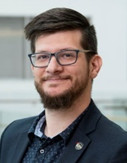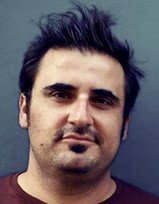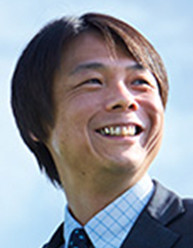Description
With the global goal and urgent calls for broad decarbonization of all processes and industries, the energy sector is entering a new age of energy awareness from the primary sources and all the way to the end-customers. Conventional consumer and producer roles are continuously challenged by novel generation technologies, while the digital revolution enables decentralized market paradigms and the rise of the “prosumer”. Moreover, achieving carbon neutrality by 2050 is now shared by the global community, and various challenging projects are being put forward around the world. Wind turbines, onshore and offshore, photovoltaic plants, battery storage systems and other novel resources are connected all over the grid, thus, leading to immediate and necessary changes to operation and planning. The grid has to handle sources of large volatility, and as a consequence, reinforcements and new control strategies are required. Conventional practices, such as building new transmission lines and hedging energy reserves for uncertainty are unfitting, due to high costs.
Although the importance of digital transformation (DX) for the energy sector is duly acknowledged by all stakeholders, the concept of digitalization has become a trend in the business and is often misunderstood. DX is more related to a holistic view of business processes, while digitalization is more related to operational processes, where Internet of Things (IoT) technologies have a crucial role in fostering a disruptive shift for the energy, power, and oil & gas sectors, with clear impacts on logistics, production, operations, and management. As a result, non-wire alternatives (NWAs) have been exploited with novel digital technologies, especially utilizing IoT-based sensors. Moreover, the role of the regional grid is not only to deliver power to consumers but also to exchange power among prosumers. This new role requires highly advanced control of the regional grid, which can be supported by both IoT and DX technologies, not only for control purposes but also for data aggregation and transformation throughout the energy value chain. This data transformation may be obtained with emerging artificial intelligence (AI) and data science (DS) technologies and finally integrated with DX technologies to make a better decision.
Current market turbulence, exacerbated also by a pandemic and conflicts of varying scale, have prioritized sustainability over digitization. As organizations need to react to rising expenses on a regular basis and doing “business as usual” is no longer an option, a digital shift is inevitable to support the demand for new disruptive services and new working arrangements. This can be fostered by digitalization and IoT, where low-cost sensing and actuation, low-power communications, distributed ledgers & computing architectures, and data-driven intelligence are the key technology enablers.
The pervasiveness of technologies, such as IoT and Blockchain, create new opportunities to manage, not only the grid infrastructure but also the energy-related data that has a huge potential in adding value to the energy business. On the one hand, IoT technologies can be used to monitor and manage energy consumption with the aim of improving energy efficiency in buildings and managing Zero Energy Buildings, that harmoniously combine energy efficiency and renewable energy generation, to achieve higher performances. Moreover, the investment in a smart grid, smart meters, and home automation technologies allows utility companies to comprehensively recapture the energy industry, drive top-line growth, and improve consumer perception. On the other hand, the use of traceability methods during energy production and transportation can pave the way to a more trustful relationship between energy producers and consumers, and thus value can be added to the energy-based products and services.
The impact of data-derived insights and digital technologies is especially strong within the full oil and gas value chain — upstream, midstream, downstream, services, and capital projects. A granular view of network-connected assets when linked with data-driven business systems helps generate quicker and better insights to drive competitive performance. The technology is creating opportunities for greater efficiencies and enhanced safety, and creating agile organizations that can keep up with all manners of external changes.
This vertical track will feature invited speakers who are thought leaders and leading practitioners in the IoT ecosystem and who will report on work that is transforming the energy, power and oil & gas sectors of the global economy. Topics that will be addressed include:
- Current IoT trends in the Power and Energy Industry Sector;
- The Internet of Things and the Digital Twin;
- Blockchain technologies for the Energy Sector;
- Edge and Mobile Cloud Computing in Industrial IoT;
- Dependable Networks for Automation Systems;
- Robust, Reliable and Cyber-Resilient IoT technologies;
- Industrial IoT Cyber-physical security;
- IoT-based prediction and optimization technologies for the Energy Sector;
- Wireless Power Transfer Technologies;
- IoT-based Equipment Diagnosis Technologies;
- Simulation and DB Technologies for the IoT ecosystem;
- Large scale deployment of connected sensors in Industrial IoT applications;
- Engaging end-customers in energy decision-making;
- Relevance of the Big and Small data to energy and power system challenges;
- Human ethology perspective in the Power and Energy Sector;
- Lessons learned from deployment of IoT technologies.
Chairs
Panayiotis Moutis

Panayiotis (Panos) Moutis, PhD, has been Special Faculty with the Scott Institute for Energy Innovation at Carnegie Mellon University (CMU) since August 2018 (postdoc at Electrical & Computer Engineering – ECE, CMU, 2016-18). His recent grants include one from the national system operator of Portugal, REN, for the development of a transmission expansion planning platform, and another from the moonshot factory of Google, X, for the digital twin of the electrical grid. Between 2018-20 he served as a Marie Curie Research Fellow with DEPsys, Switzerland, on distribution grid synchronized measurements and state estimation. In 2014 he was awarded a fellowship by Arup UK (through the University of Greenwich), on the “Research Challenge of Balancing Urban Microgrids in Future Planned Communities”. In 2013 he won the “IEEE Sustainability 360o Contest” on the topic of Power. Throughout 2007-15, as part of Prof. Nikos Hatziargyriou’s research group he contributed to over a dozen R&D projects funded by the European Commission. Panos received both his diploma (2007) and his PhD (2015) degrees in ECE at the National Technical University of Athens, Greece, and has published more than 30 papers and contributed to 4 book chapters. He has accumulated over 10 years of industry experience on projects of Renewable Energy Sources and Energy Efficiency, and serves in energy start-ups as advisor and executive. He is a senior member of multiple IEEE societies, member of the IEEE-USA Energy Policy Committee and the North American Synchro-Phasor Initiative (NASPI), associate editor of IEEE & IET scientific journals, contributor to IEEE standards working groups, chair of the IEEE Smart Grid Publications Committee and editor-in-chief of the “IEEE Smart Grid Newsletter”. Personal Website for more information: https://panay1ot1s.com/
Sergio Ivan Lopes

Sérgio Ivan Lopes (S’11-M’15-SM’20), is a senior researcher at Instituto de Telecomunicações, Assistant Professor at the Technology and Management School of the Polytechnic Institute of Viana do Castelo (ESTG-IPVC), and Director General at CiTin – Centro de Interface Tecnológico e Industrial. He is graduated in Electronics and Telecommunications Engineering, M.Sc. in Biomedical Engineering, Ph.D. in Electrical Engineering (University of Aveiro) and has a Postgraduate Diploma in Project Management (Porto Business School/University of Porto). In 2007, he has been awarded the Texas Instruments ESPA – Excellence in Signal Processing Award, and in 2015, he has been awarded the First Prize of the Fraunhofer Portugal Challenge (Ph.D. category), a distinction that rewards research of practical utility. He is the co-inventor of one patent and authored more than 90 scientific publications in international peer reviewed journals and international conference proceedings. He participated in several national and international R&D Projects, five of which in coordination activities. His research interests include cyber-physical systems, IIoT/IoT, embedded systems, edge computing/intelligence, digital signal processing and indoor positioning. In 2016, he joined the Expert Panel of the European Commission, being engaged in the evaluation of the call ICT-01-2016: Smart Cyber-Physical Systems. He is an active member of the IEEE Communications Society; actively collaborates with the IEEE Internet of Things (IoT) Initiative; and holds the position of Counselor in the Executive Committee of the IEEE IPVC Student Branch. He is the General-Chair at the Edge-IoT – International Conference on Intelligent Edge Processing in the IoT Era.
Taku Noda

Taku Noda was born in Osaka, Japan in 1969. He received his B. Eng., M. Eng. and Ph. D. degrees from Doshisha University, Kyoto, Japan in 1992, 1994 and 1997 respectively. In 1997, he joined Central Research Institute of Electric Power Industry (CRIEPI). He is currently DX Strategist and Senior Research Scientist with Grid Innovation Research Lab. in the same institute and also serves as Chairperson of the IEEE Power & Energy Society Japan Joint Chapter. He held the following positions in his carrier: Visiting Scientist, University of Toronto, ON, Canada (2001-2002); Adjunct Professor, Doshisha University (2005-2008); Editor, IEEE Transactions on Power Delivery (2008-2014); and Lecturer, Shibaura Institute of Technology, Tokyo, Japan, (2012-2015). He received the Best Paper Award twice in 2008 and 2022 and the Progress Award twice in 2009 and 2016 from the Institute of Electrical Engineers of Japan (IEEJ) and also received the Electrical Science and Engineering Promotion Award in 2016 from its foundation.


